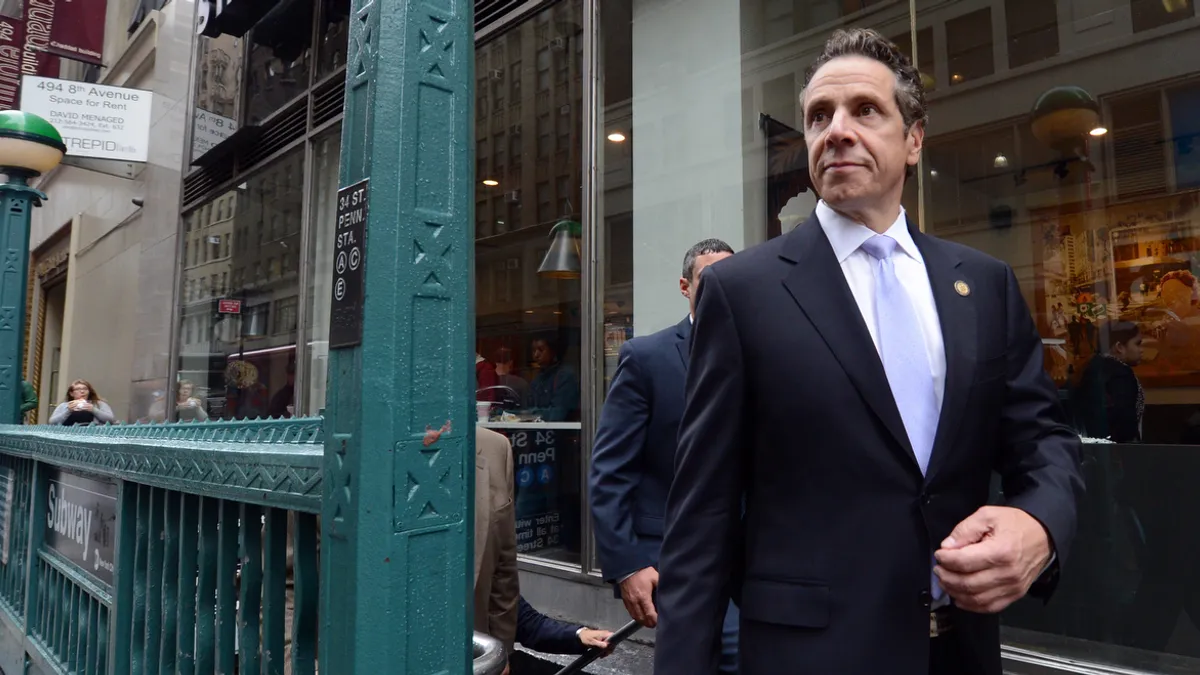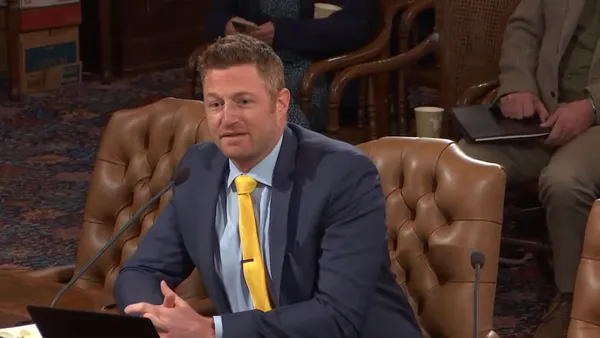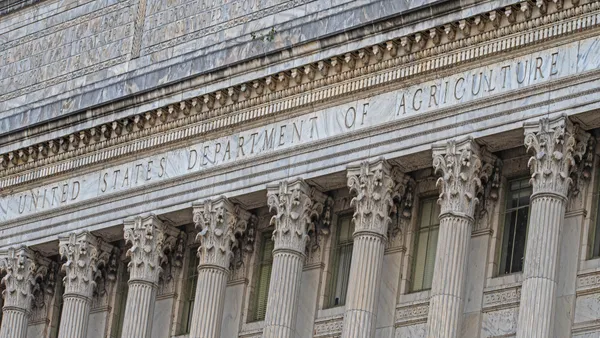UPDATE April 2, 2018: A proposed commercial organics recycling mandate was not included in the final FY19 budget passed by New York state legislators over the weekend. That language was cut in the third and final amended version of the budget bill.
Sources indicate that restaurant and institutional opposition was likely a key factor. In January, Politico reported that the Healthcare Association of New York State was still against this proposal even with more open-ended language added since 2017.
Some believe it is still possible that this policy could be passed in another form before the end of Albany's legislative session in June.
Dive Brief:
- New York Gov. Andrew Cuomo reintroduced legislation for a commercial organics diversion mandate in his proposed executive budget for FY19. Any commercial establishment that generates an average two tons or more per week of excess food and food scraps would be required to arrange for recovery and recycling by Jan. 2021.
- As written, this would cover supermarkets, restaurants, higher education institutions, hotels, food processors, correctional facilities, sports and entertainment venues, hospitals and other healthcare facilities. Generators in New York City would be excluded because of pre-existing local policy. Food donation would be required with no exceptions, but generators may receive short-term exemptions for food scrap recycling if no processing options are available within a 40-mile radius or if they can prove costs would be higher than disposal.
- If the legislation is passed, the state's Department of Environmental Conservation (DEC) would be required to assess regional capacity and notify generators of expected compliance by June 2020. All covered generators would be required to submit annual reports to DEC detailing their progress beginning March 2022.
Dive Insight:
This proposed language is nearly identical to the Food Recovery and Recycling Act in Cuomo's FY18 budget, even down to the enactment date. Minor differences include a longer lead time for generators if DEC determines capacity is available in 2020, a 10-mile reduction in the processing exemption radius and more specific details about temporary waivers being available if recycling proves more expensive than disposal. The bill would also establish a statewide food waste hierarchy — similar to the EPA's model — that emphasizes reduction, feeding people, feeding animals and then recycling.
Last year, the New York State Energy Research and Development Authority estimated that 3.9 million tons of food waste is generated in the state each year and only about 3% of that is diverted. At the time, it was projected that a statewide policy would affect 1,700 commercial generators (excluding New York City), drive up to $22.6 million in economic benefits and lead to a 20% increase in food bank inventory.
Yet the proposal didn't make it into the state's final budget legislation come April, and further efforts to advance it during the remainder of the session were unsuccessful. At the time, the DEC pointed to a collective $6 million in the budget for various food donation and recycling efforts, and a tax credit for farmers to donate excess food. The following month, Cuomo released a methane reduction plan that cited landfills as a major source of emissions and pledged ongoing support for food recovery or recycling.
With all of this in mind, the passage of a statewide policy is still seen as a high priority for groups such as the New York League of Conservation Voters and the Natural Resources Defense Council. Though based on the experience last year, the reintroduction of this language is far from a guarantee.
Some large generators were said to have privately opposed the policy and questions are bound to be raised about whether sufficient capacity will be available to make it feasible within three years. The waste and recycling industry, though supportive of the discussion last year, could also raise questions about the bill's requirements for haulers, transfer stations and disposal facilities.
If Cuomo's proposal does pass in April, it would make New York the sixth state with some form of commercial organics recycling law. That list currently includes California, Massachusetts, Vermont, Connecticut and Rhode Island. New Jersey is also seen as a potential candidate under the state's new governor.















